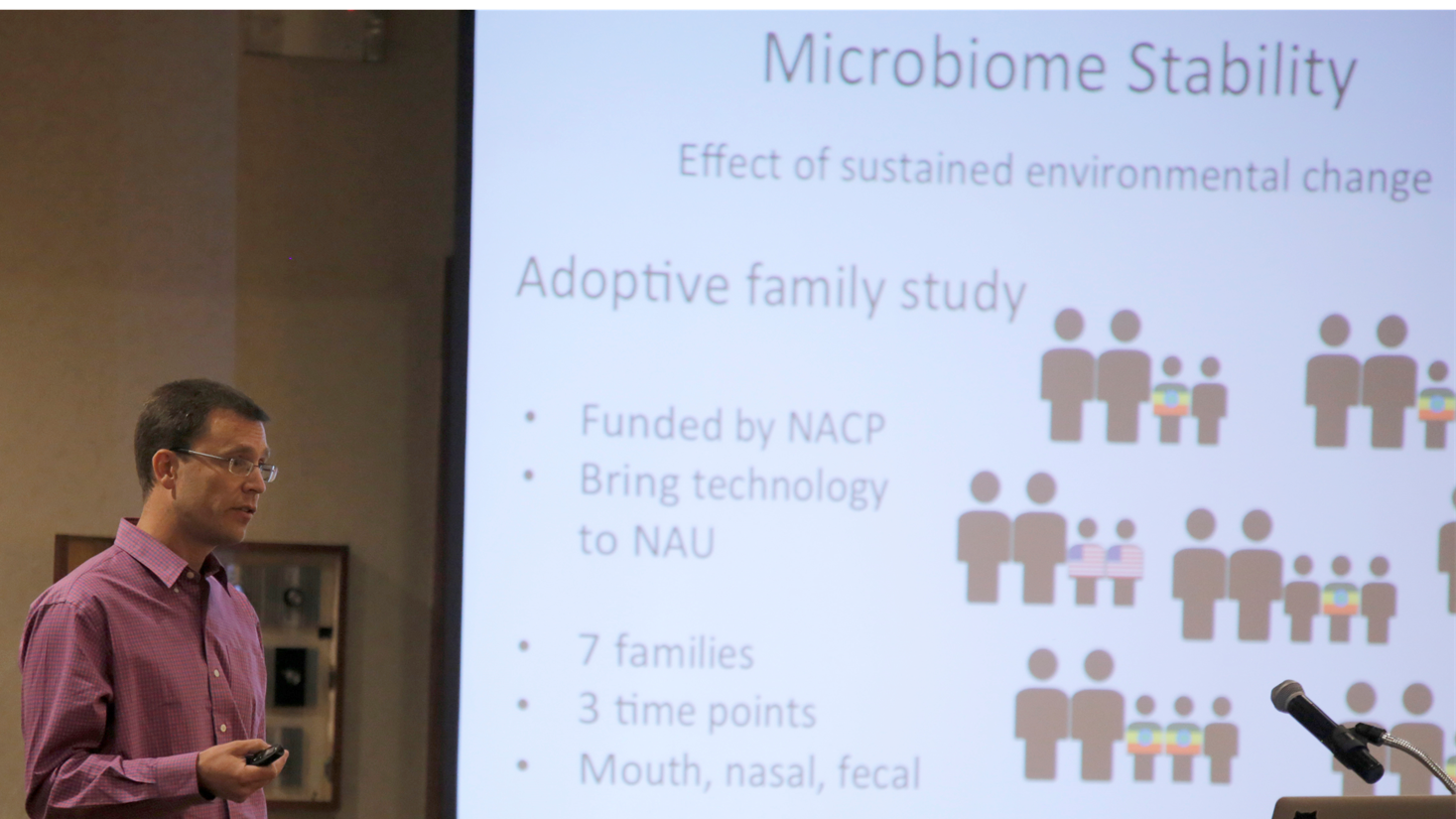Microbes, Bile Acids, and Colorectal Cancer

Project Co-leaders
NAU
James Gregory Caporaso, Ph.D. Assistant Director, Center for Microbial Genetics & Genomics, Assistant Professor, Department of Biological Sciences
Talima Pearson, Ph.D. Assistant Research Professor, Department of Biological Sciences, Center for Microbial Genetics & Genomics
UACC
Peter Lance, M.D., FRCP Professor, Medicine, Molecular & Cellular Biology, and Public Health
Research Specialist
Monica Yellowhair, Ph.D.
Colorectal cancer is the second most common cause of deaths from cancer. Formerly relatively uncommon among Native Americans, colorectal cancer is now increasing in this population. An important risk factor is family history, i.e. having a close family member who was diagnosed with the disease. For those without a family history of the disease (the majority of those who develop colorectal cancer), the most important risk factors are a lack of physical activity and obesity.
It is increasingly realized that the fecal mass in the large bowel (colon and rectum), consisting as it does of trillions of bacteria, is a very important environmental factor in sustaining a healthy colon and rectum and, when perturbed, acting as an important risk factor for colorectal cancer; the fecal bile acids are cofactors with the fecal bacteria in these roles in health and disease. It is thought that lifestyle, particularly the diet, may have an important bearing on the types and abundance of intestinal bacterial and the bile acid profile.
In the Microbes, Bile Acids and Colorectal Cancer project we are investigating the bacterial and bile acid profiles in stool specimens from 433 individuals who developed colorectal polyps (adenomas). These individuals were participants in a clinical trial designed to test ursodeoxycholic acid (UDCA) as a means to prevent colorectal cancer. These participants were divided into two groups: one that received the treatment and the other that received a placebo. UDCA treatment reduced the risk of developing colorectal cancer for males, but not females. Stool samples from these participants are ideal for determining how gut bacteria and bile acids are related to each other and the development of colorectal cancer. We also aim to explore whether the bacterial communities and bile acids that are associated with the development of colorectal cancer are independent of race/ethnicity and thus reflect the sharing of environmental factors such as diet. We therefore aim to collect and analyze stool specimens and dietary information from 50–70 year-old NA men and women, with a focus on members of the Navajo Nation (though not exclusive) residing in urban and rural communities. We are confident that from these studies we will learn crucial facts about what constitutes a “healthy” fecal colorectal environment and how it might be possible in the future to sustain a healthy fecal environment in order to prevent colorectal cancer.
We have begun to characterize the communities of bacteria from the stool samples associated with the UDCA clinical trial and initial analyses support our hypothesis that significant changes in the gut microbial communities occur after treatment. We are now in the process of trying to characterize the communities of bacteria from the stool samples associated with the UDCA clinical trial and initial analyses support our hypothesis that significant changes in the gut microbial communities occur after treatment. We are now in the process of trying to characterize these changes and identify the species and strains that may be driving the community changes.
